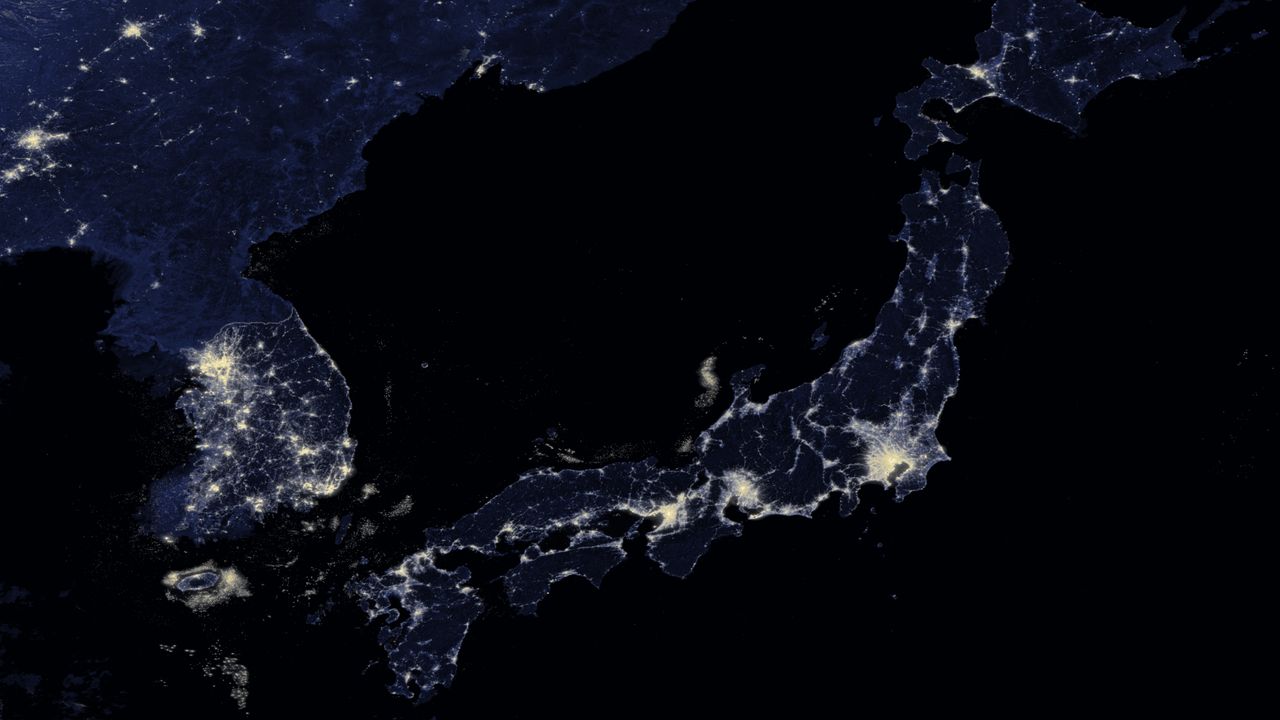
Brilliant Meteor Illuminates Sakurajima Volcano and Kagoshima City, Japan 🇯🇵 (19.08.2025) pic.twitter.com/NpAJaNMZ9eAugust 19, 2025
A fireball briefly turned night to day in the skies over Japan on the night of Aug. 19, before appearing to fragment over the Pacific Ocean.
The fireball flared to life at 11:08 p.m. local time on Aug. 19, appearing to streak southwest through the skies above southern Japan. Its brief but dramatic descent was captured on several surveillance cameras and dashcams located in the western cities of Kagoshima and Kumamoto and was even spotted as far east as Osaka's Kansai Airport, located approximately 124 miles (200 kilometers) away.
Social media footage documenting the event revealed that the meteor emitted a series of green-blue flashes that briefly overwhelmed some camera sensors, before letting off a final flare of orange-red light and breaking apart as it neared the horizon.
Watch a bright fireball "meteorite" explode above Japan, turning night to day#Geology #GeologyPage #Japan #meteorite pic.twitter.com/AJ9jdBFAnbAugust 20, 2025
So-called "shooting stars" become visible when hunks of ancient space debris left over from the creation of the solar system collide with Earth's atmosphere. The particles are swiftly overwhelmed by atmospheric friction, burning up in a dramatic display that can be easily visible to the naked eye. Larger pieces of debris that burn bright enough to outshine even the brightest planets in the night sky are referred to as fireballs.
The Perseid meteor shower — which is known for producing spectacular fireballs — is currently active, as are the weaker kappa Cygnids (KCG). However, it's difficult to tell whether the Aug. 19 event was associated with a meteor shower, or the result of a random piece of space debris striking Earth's atmosphere, known as a 'sporadic'.
Editor's Note: If you capture an image of a fireball and want to share it with Space.com's readers, then please send your photo(s), comments, and your name and location to spacephotos@space.com.







